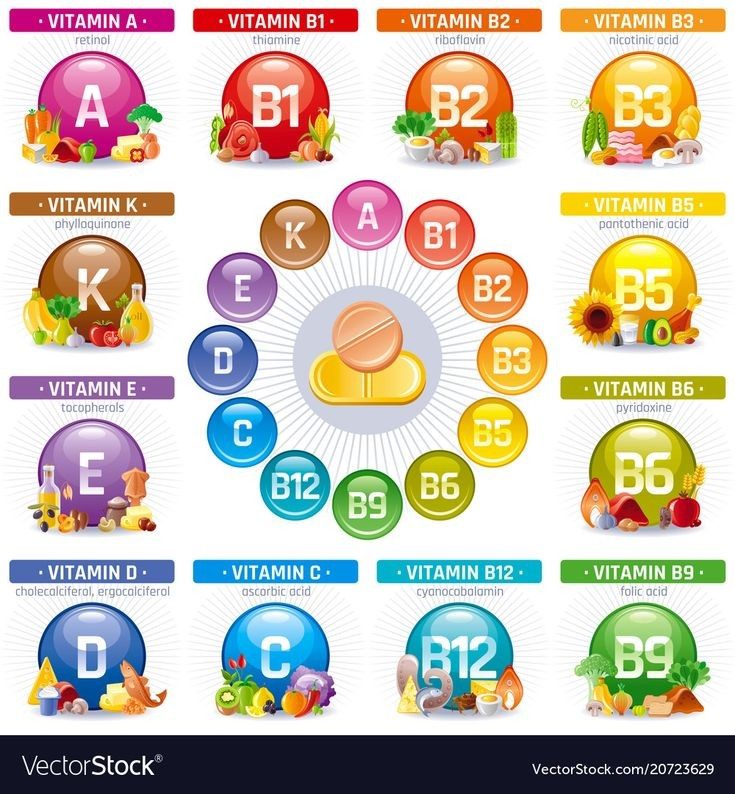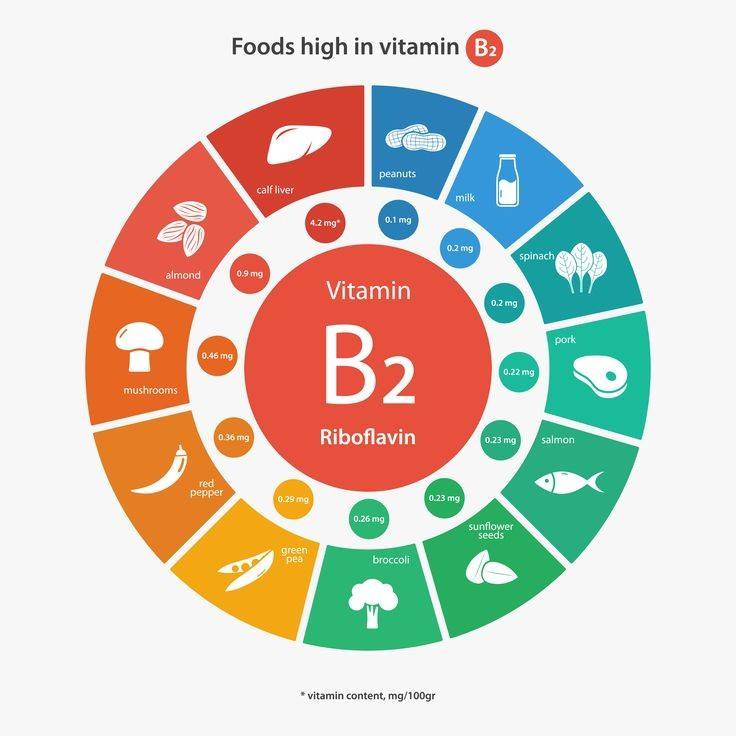- Energy Production: Vitamin B2 is essential for the metabolism of fats, carbohydrates, and proteins, converting them into usable energy for the body.
- Cell Growth and Repair: It is involved in cellular processes, promoting growth, maintenance, and repair of body tissues.
- Antioxidant Activity: Riboflavin acts as an antioxidant, protecting cells from oxidative stress caused by free radicals.
- Healthy Skin and Vision: Vitamin B2 contributes to maintaining healthy skin, hair, and nails. It also supports good vision and may help prevent cataracts.
- Nervous System Function: It aids in the maintenance of a healthy nervous system.
Food Sources: Vitamin B2 can be obtained from various dietary sources, including:
- Meat and Poultry: Beef liver, lamb, turkey, and chicken.
- Fish: Salmon and mackerel.
- Dairy Products: Milk, yogurt, and cheese.
- Eggs
- Leafy Greens: Spinach, kale, and broccoli.
- Legumes: Soybeans, lentils, and peas.
- Nuts and Seeds: Almonds and sunflower seeds.
- Whole Grains: Brown rice, quinoa, and fortified cereals.
Recommended Daily Intake: The recommended daily intake of vitamin B2 varies with age, sex, and life stage. For adults, the Recommended Dietary Allowance (RDA) is generally around 1.1-1.3 mg for men and 0.9-1.1 mg for women.
Side Effects: Vitamin B2 is generally considered safe, and there are no reported side effects from excessive intake. As a water-soluble vitamin, any excess is excreted in the urine. However, high doses of supplements may cause some people to experience mild side effects, such as:
- Yellow-orange urine: This is a harmless and temporary effect due to the body excreting the excess riboflavin.
- Sensitivity to light: In rare cases, very high doses of vitamin B2 might cause sensitivity to light (photosensitivity) in some individuals.
Important Note: It's essential to obtain your vitamins and minerals from a balanced diet rather than relying solely on supplements. A varied and balanced diet typically provides all the necessary nutrients, including vitamin B2.
As with any supplementation, it's always best to consult with a healthcare professional before starting any new vitamin regimen, especially if you have pre-existing medical conditions or are taking medications.




Comments
Post a Comment